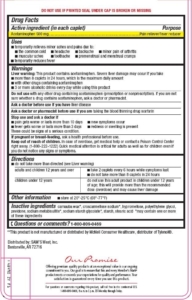July 16, 2014
Contact: National Consumers League, Ben Klein, (202) 835-3323, benk@nclnet.org
Carol McKay, (412) 945-3242, carolm@nclnet.org
Javelin Strategy & Research, Danielle Ostrovsky (410) 302-9459,dostrovsky.ctr@javelinstrategy.com
Natalie Bauer, Office of Attorney General Madigan, 312-814-4947,nbauer@atg.state.il.us
Attorney General Madigan and National Consumers League Address Online Security for Illinois Residents
Chicago – New research released today by the National Consumers League (NCL) and Javelin Strategy and Research reveals disturbing trends for Chicago residents who have been affected by data breaches, finding that 72 percent of fraud victims were also victims of data breach, suggesting a strong link between breaches and fraud.
Attorney General Madigan joined representatives from NCL and Javelin Strategy & Research Wednesday at 1871 to discuss the research findings and resources for Illinois residents to protect themselves from identity theft.
“The latest data breaches have served as a wakeup call signaling that government and the private sector need to take serious, meaningful action to curb this growing threat to our financial security,” Madigan said.
Also included in the research were findings that show consumers are losing faith in business to protect their identities and want more government action on fraud prevention measures.
“Data insecurity is leading to real consumer harm and this report confirms consumers are at a loss for where to turn in the face of this national problem,” said NCL’s John Breyault. “As consumers share vast amounts of personal data with businesses, government and other entities, they expect their information to be protected from malicious hackers.”
This event today in Chicago is the third in NCL’s’ #DataInsecurity Project, and follows similar events in Miami and Los Angeles which featured United States Attorney for the Southern District of Florida Wifredo Ferrer, Federal Trade Commission Commissioner Terrell McSweeny and Joanne McNabb, Director of Privacy Education & Policy for the California Office of the Attorney General.
“In this polarized political climate, it’s rare for Americans to express such agreement on any issue,” said Al Pascual, Javelin’s Senior Analyst of Fraud and Security. “But when itcomes to the security of their personally identifiable information, the respondents said with one voice that the government must do more.”
#DataInsecurity Project Findings For Chicago Metropolitan Area Fraud Victims
The National Consumers League recently released new research examining the impact of data breaches and identity fraud on consumer victims in four key regions nationwide, including the Chicago metropolitan area. According to the study, Americans are urgently calling out for government action on the growing threat posed by data breach and identity theft.
The study, conducted in partnership with Javelin Strategy & Research, shows that theimpact of data breaches on consumers is indeed severe: 61 percent of data breach victims who also experienced identity theft reported that the breached information was used to commit the fraud against them. What’s more, nearly half of all fraud victims – 49 percent – do not know where the information used to defraud them was compromised.
The NCL/Javelin study, which includes surveys of fraud victims from Chicago, Los Angeles, Miami and Minneapolis, along with additional Javelin research on national fraud trends, found that consumers are calling for government to take action. A mere 28 percent of victims surveyed said the government’s requirements for protecting healthcare and financial data were “sufficient.”
In Chicago, 43 percent of fraud victims said their data was used to make online purchases and 28 percent said their information was used to make purchases in-person. Among fraud victims in Chicago, 72 percent had previously received a data breachnotification which is higher than reporting by victims in Minneapolis (66 percent), but is comparatively worse than in Los Angeles (82 percent) and Miami (80 percent) where the rates of data breach notification among fraud victims were significantly higher.
According to the new study, the consequences of consumer fraud have a serious ripple effect: fraud victims report losing trust in the businesses where their data was compromised. For example, 59 percent of respondents whose data was breached at a retailer expressed “significantly decreased” trust in retailers who failed to protect their information. “When consumer trust drops, so do sales,” added Breyault, “This study is only the latest evidence for why the business community should be one of the most vocal advocates for protecting consumer data.”
###
About the National Consumers League
The National Consumers League, founded in 1899, is America’s pioneer consumer organization. Our mission is to protect and promote social and economic justice for consumers and workers in the United States and abroad. For more information, visitwww.nclnet.org.





 Consumer education is a key step to ensuring safe acetaminophen use and preventing overdoses. A new report from the Acetaminophen Awareness Coalition (of which National Consumers League is a founding member) “
Consumer education is a key step to ensuring safe acetaminophen use and preventing overdoses. A new report from the Acetaminophen Awareness Coalition (of which National Consumers League is a founding member) “











